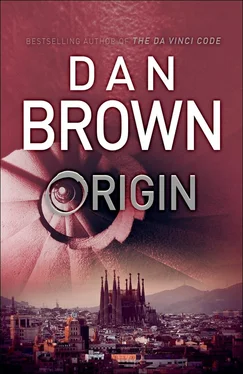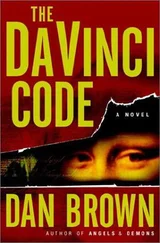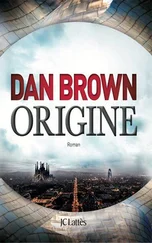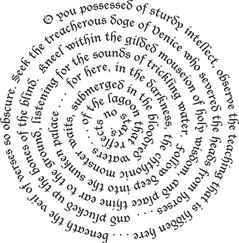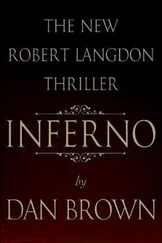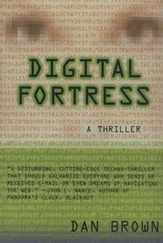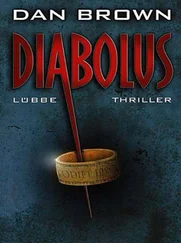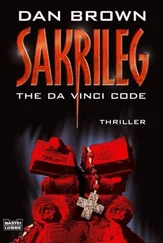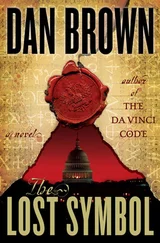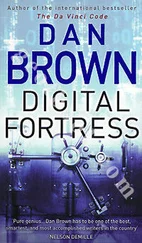“Let’s start with the spiral,” Langdon said. “You know I’m claustrophobic.”
“Precisely. Tonight is all about pushing people outside their comfort zones,” he said with a smirk.
“Always your specialty.”
“Moreover,” Kirsch added, “I needed to speak to you, and I didn’t want to be seen before the show.”
“Because rock stars never mingle with guests before a concert?”
“Correct!” Kirsch replied jokingly. “Rock stars appear magically onstage in a puff of smoke.”
Overhead, the lights suddenly faded off and on. Kirsch pulled back his sleeve and checked his watch. Then he glanced to Langdon, his expression turning suddenly serious.
“Robert, we don’t have much time. Tonight is a tremendous occasion for me. In fact, it will be an important occasion for all of humankind.”
Langdon felt a flush of anticipation.
“Recently, I made a scientific discovery,” Edmond said. “It’s a breakthrough that will have far-reaching implications. Almost nobody on earth knows about it, and tonight — very shortly — I will be addressing the world live and announcing what I’ve found.”
“I’m not sure what to say,” Langdon replied. “This all sounds amazing.”
Edmond lowered his voice, and his tone grew uncharacteristically tense. “Before I go public with this information, Robert, I need your advice.” He paused. “I fear my life may depend on it.”
Silence had fallen between the two men inside the spiral.
I need your advice... I fear my life may depend on it.
Edmond’s words hung heavily in the air and Langdon saw disquiet in his friend’s eyes. “Edmond? What’s going on? Are you okay?”
The overhead lights faded off and on again, but Edmond ignored them.
“It has been a remarkable year for me,” he began, his voice a whisper. “I’ve been working alone on a major project, one that led to a ground-breaking discovery.”
“That sounds wonderful.”
Kirsch nodded. “It is indeed, and words can’t describe how excited I am to share it with the world tonight. It will usher in a major paradigm shift. I am not exaggerating when I tell you that my discovery will have repercussions on the scale of the Copernican revolution.”
For a moment, Langdon thought his host was joking, but Edmond’s expression remained dead serious.
Copernicus? Humility had never been one of Edmond’s strong suits, but this claim sounded borderline preposterous. Nicolaus Copernicus was the father of the heliocentric model — the belief that the planets revolve around the sun — which ignited a scientific revolution in the 1500s that entirely obliterated the Church’s long-held teaching that mankind occupied the center of God’s universe. His discovery was condemned by the Church for three centuries, but the damage had been done, and the world had never been the same.
“I can see you’re skeptical,” Edmond said. “Would it be better if I said Darwin?”
Langdon smiled. “Same issue.”
“Okay, then let me ask you this: What are the two fundamental questions that have been asked by the human race throughout our entire history?”
Langdon considered it. “Well, the questions would have to be: ‘How did it all begin? Where do we come from?’”
“Precisely. And the second question is simply the ancillary to that. Not ‘where do we come from’... but...”
“‘Where are we going?’”
“Yes! These two mysteries lie at the heart of the human experience. Where do we come from? Where are we going? Human creation and human destiny . They are the universal mysteries.” Edmond’s gaze sharpened and he peered at Langdon expectantly. “Robert, the discovery I’ve made... it very clearly answers both of these questions.”
Langdon grappled with Edmond’s words and their heady ramifications. “I’m... not sure what to say.”
“No need to say anything. I’m hoping you and I can find time to discuss it in depth following tonight’s presentation, but at the moment, I need to talk to you about the darker side of all this — the potential fallout from the discovery.”
“You think there will be repercussions?”
“Without a doubt. By answering these questions, I have placed myself in direct conflict with centuries of established spiritual teachings. Issues of human creation and human destiny are traditionally the domain of religion. I’m an interloper, and the religions of the world are not going to like what I’m about to announce.”
“Interesting,” Langdon replied. “And is this why you spent two hours grilling me about religion over lunch in Boston last year?”
“It is. You may remember my personal guarantee to you — that in our lifetime, the myths of religion would be all but demolished by scientific breakthroughs.”
Langdon nodded. Hard to forget. The boldness of Kirsch’s declaration had emblazoned itself word for word in Langdon’s eidetic memory. “I do. And I countered that religion had survived advances in science for millennia, and that it served an important purpose in society, and while religion might evolve, it would never die.”
“Exactly. I also told you that I had found the purpose of my life — to employ the truth of science to eradicate the myth of religion.”
“Yes, strong words.”
“And you challenged me on them, Robert. You argued that whenever I came across a ‘scientific truth’ that conflicted with or undermined the tenets of religion, I should discuss it with a religious scholar in hopes I might realize that science and religion are often attempting to tell the same story in two different languages.”
“I do remember. Scientists and spiritualists often use different vocabularies to describe the exact same mysteries of the universe. The conflicts are frequently over semantics, not substance.”
“Well, I followed your advice,” Kirsch said. “And I consulted with spiritual leaders about my latest discovery.”
“Oh?”
“Are you familiar with the Parliament of the World’s Religions?”
“Of course.” Langdon was a great admirer of the group’s efforts to promote interfaith discourse.
“By chance,” Kirsch said, “the parliament held their meeting outside Barcelona this year, about an hour from my home, at the Abbey of Mont-serrat.”
Spectacular spot , Langdon thought, having visited the mountaintop sanctuary many years ago.
“When I heard it was taking place during the same week I had planned to make this major scientific announcement, I don’t know, I...”
“Wondered if it might be a sign from God?”
Kirsch laughed. “Something like that. So I called them.”
Langdon was impressed. “You addressed the entire parliament?”
“No! Too dangerous. I didn’t want this information leaking out before I could announce it myself, so I scheduled a meeting with only three of them — one representative each from Christianity, Islam, and Judaism. The four of us met in private in the library.”
“I’m amazed they let you in the library,” Langdon said with surprise. “I hear that’s hallowed ground.”
“I told them I needed a secure meeting place, no phones, no cameras, no intruders. They took me to that library. Before I told them anything, I asked them to agree to a vow of silence. They complied. To date, they are the only people on earth who know anything about my discovery.”
“Fascinating. And how did they react when you told them?”
Kirsch looked sheepish. “I may not have handled it perfectly. You know me, Robert, when my passions flare, diplomacy is not my métier.”
“Yes, I’ve read that you could use some sensitivity training,” Langdon said with a laugh. Just like Steve Jobs and so many genius visionaries.
Читать дальше
